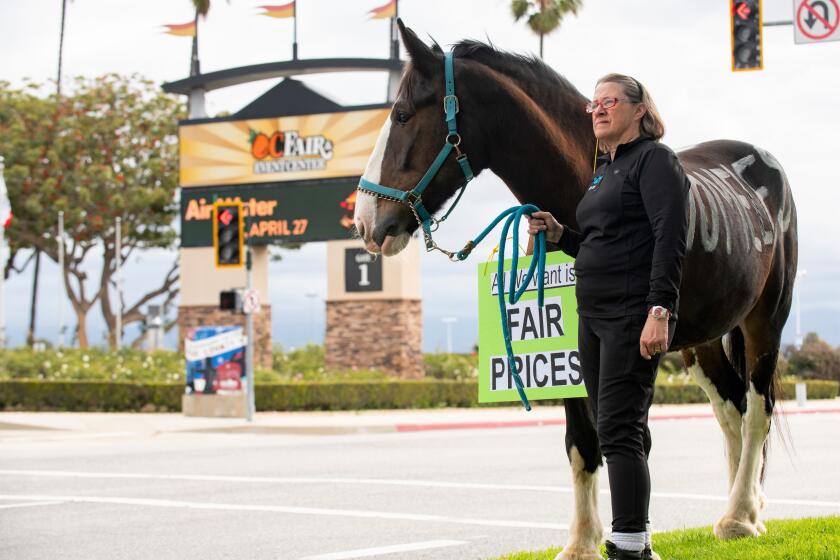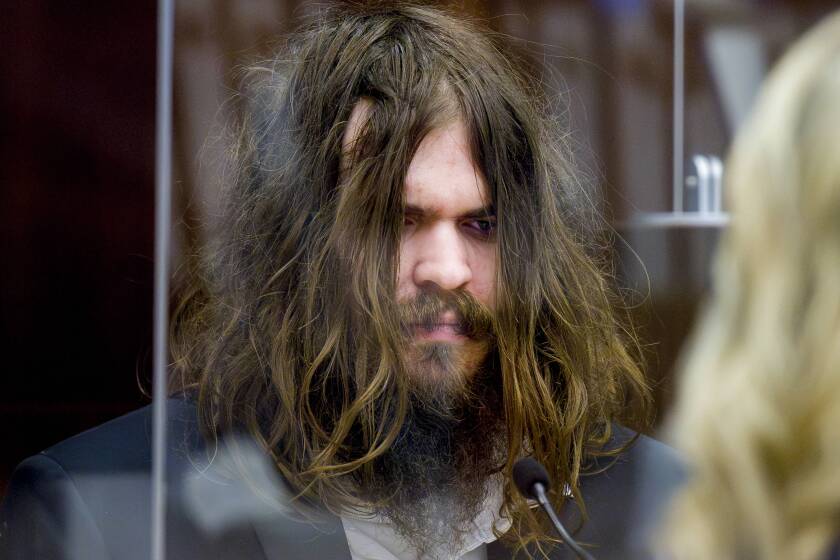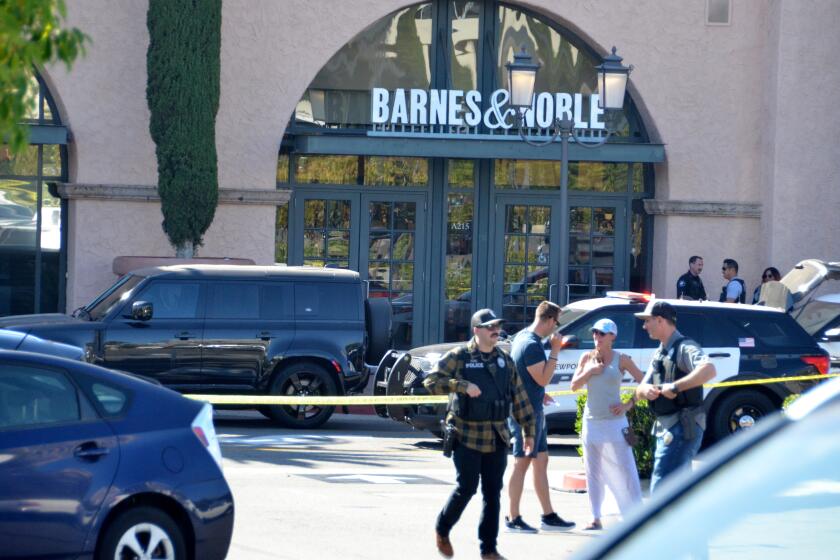Judge orders release of Costa Mesa man nabbed as suspect in Capitol riot
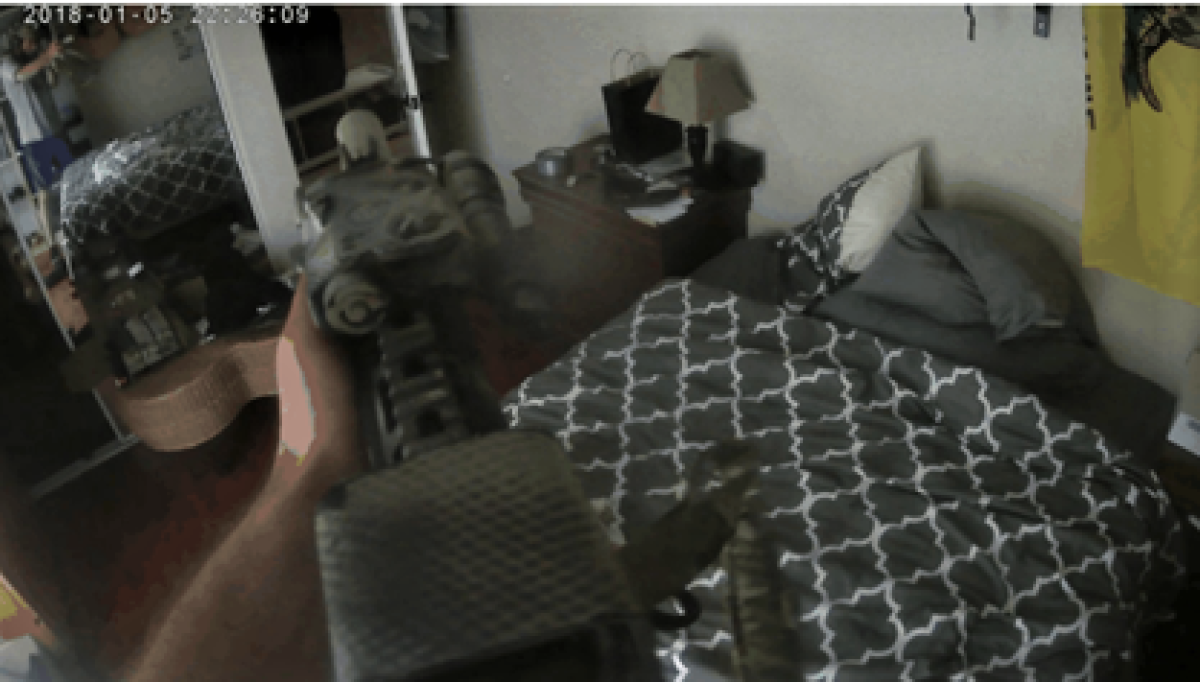
A UCLA student arrested in an FBI raid last month in Costa Mesa in connection with his alleged participation in the Jan. 6 U.S. Capitol attack has been released from detention pending trial, despite claims from prosecutors he constitutes a danger to the community.
U.S. District Court Judge Trevor McFadden on Wednesday ordered the release of 22-year-old Christian Secor, held in custody since his Feb. 16 arrest, indicating he is to remain under house arrest and regularly report to authorities.
In addition to having to pay a $200,000 bond to secure his release, Secor is prohibited from possessing firearms or narcotics and has been ordered to stay away from Washington, D.C. He cannot use or apply for a passport and must submit to location monitoring, court records indicate.
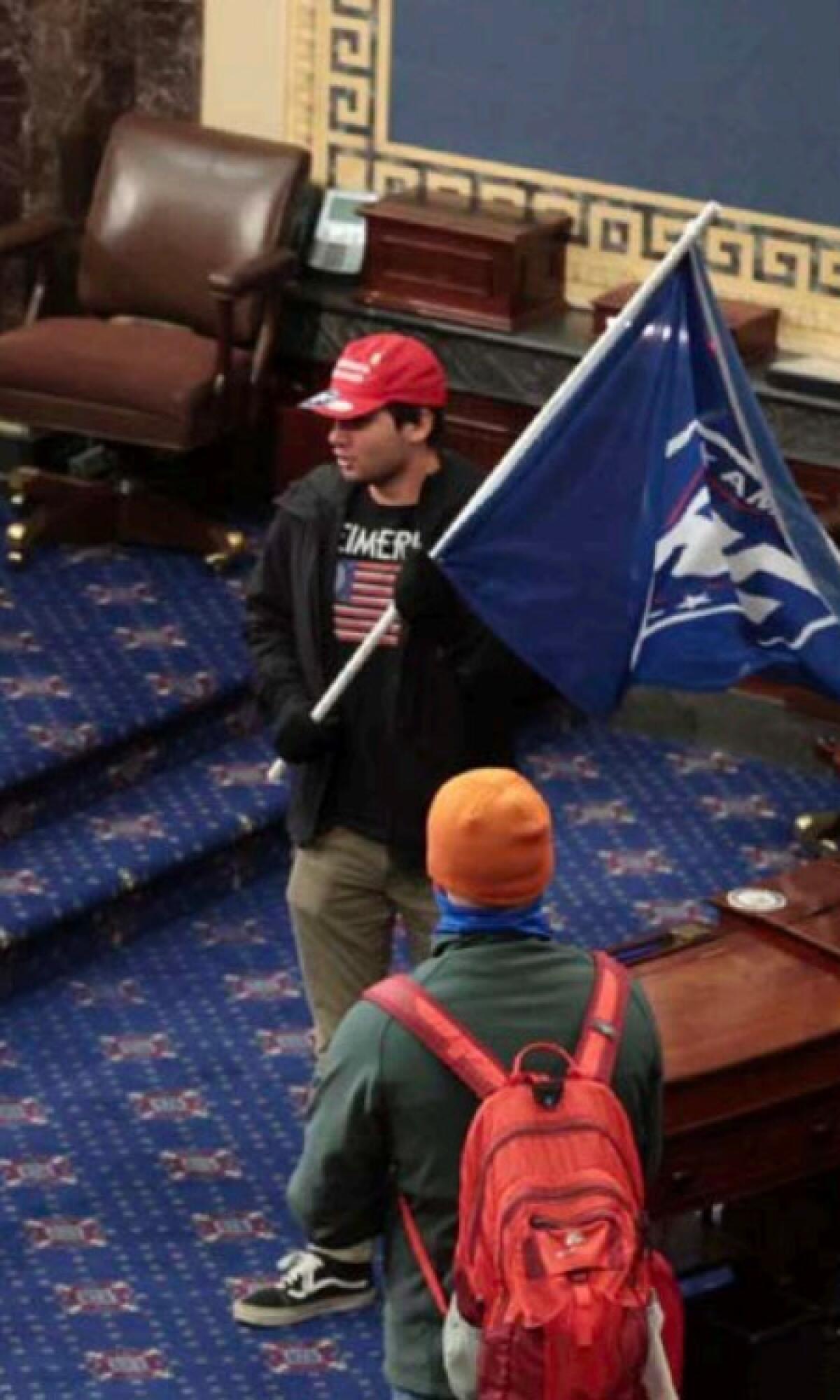
FBI agents used news and closed-circuit camera footage, along with information provided by tipsters, to determine Secor was among a group of rioters who pushed their way past officers and entered the Capitol building. Video showed the student inside the Senate chamber, sitting in the chair occupied by Vice President Mike Pence before the attack.
Secor pleaded not guilty to a list of 10 charges, ranging from civil disorder and obstructing an official proceeding to entering restricted grounds and assaulting, resisting or impeding officers.
Defense counsel Brandi Harden filed a March 14 emergency motion with the U.S. District Court for the District of Columbia asking that Secor’s detention order be revoked so he could complete his final exams at UCLA, where he was studying political science and was reportedly on track to graduate.
“This is Mr. Secor’s first arrest, he has no history of violent behavior and has no criminal record,” Harden wrote in the motion, stating that Secor caused no injuries while inside the Capitol. “Furthermore, [he] is not a risk of flight.”
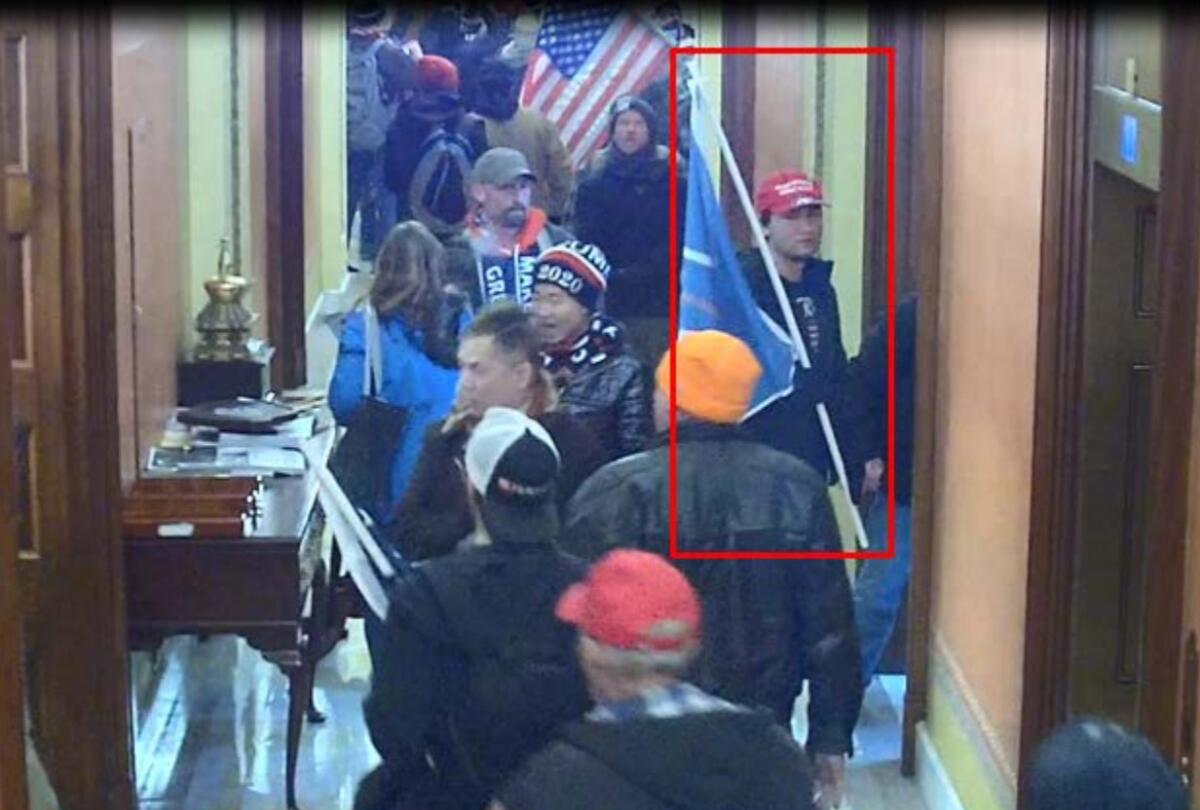
The attorney claimed the events of Jan. 6 were not planned by Secor but instead inspired by statements made earlier that day by then President Donald Trump that “encouraged — and foreseeably resulted in — imminent lawless action at the Capitol.”
In a document opposing the motion, Asst. U.S. Atty. Kim Paschall urged the court not to grant Secor’s release, stating he’d destroyed his cellphone after returning from the Capitol, made plans to evade law enforcement and was planning “ultra-secret” future operations with others in California.
Paschall explained when FBI agents raided Secor’s home and vehicle in Costa Mesa, they discovered multiple weapons, including an unregistered “ghost gun,” three knives, a baton, along with mace and body armor plates, and a .22 caliber rifle registered in Secor’s name.
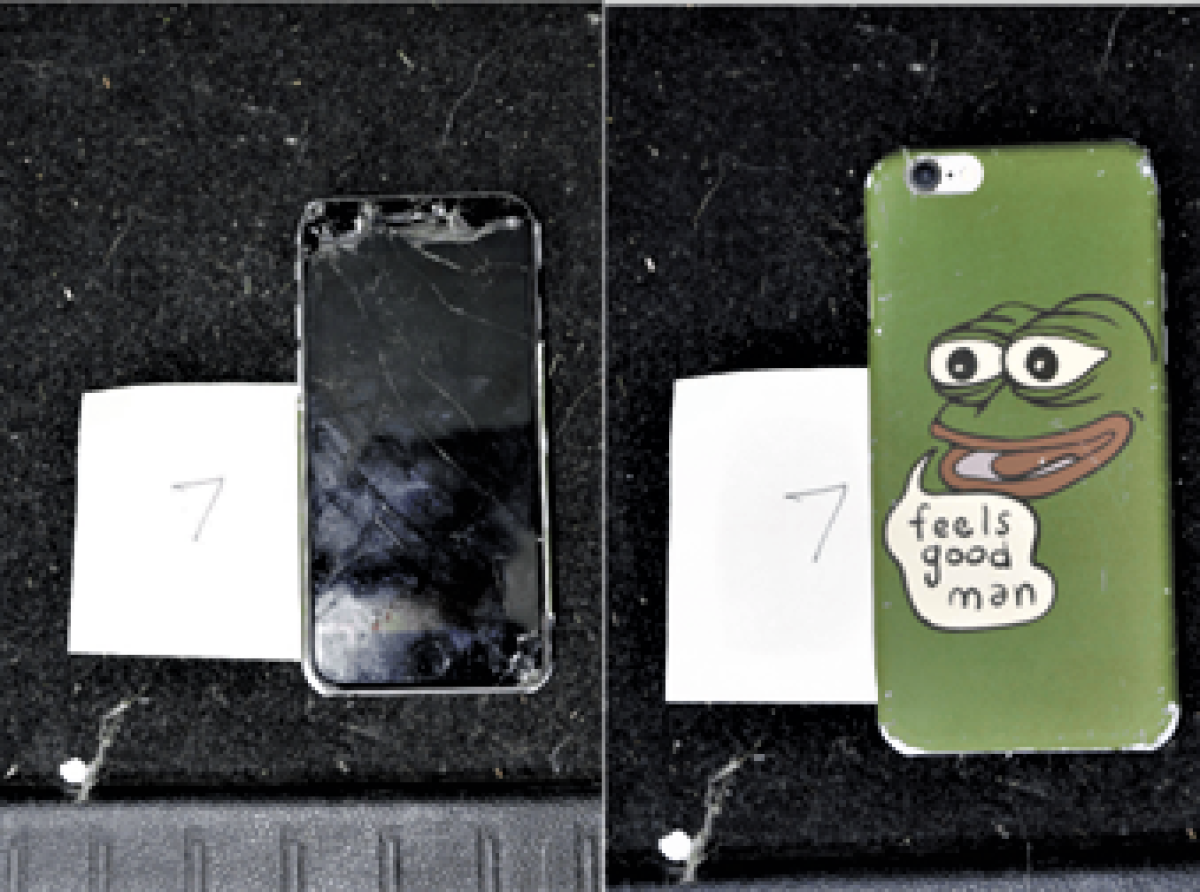
Go-Pro camera footage recovered during the search of the premises showed Secor wearing a tactical helmet and aiming an assault-style rifle. That weapon was not located during the Feb. 16 raid.
“The government has grave concerns about the defendant’s access to weapons that are not registered to him should he be released,” Paschall wrote.
She highlighted that despite his being unemployed, Secor had access to substantial financial resources that would provide him the means and opportunity to flee from law enforcement.
Subpoenaed bank records indicate that in a one-year period, he’d been the recipient of more than $33,200 in the form of brokerage account and cash deposits as well as 29 deposits from various PayPal accounts.
Further, Paschall wrote, subpoena returns for one of Secor’s credit card accounts showed that, between Dec. 2019 and Nov. 2020, he made at least 20 purchases from firearms and military tactical gear retailers totaling more than $3,300.
“He is a danger to the continued operation of the federal government, the law enforcement officers dedicated to protecting that government and to the community at large,” Paschall concluded.
Harden did not respond to requests for comment Thursday, and a representative from the U.S. Attorney’s Office in Washington, D.C., said the office declined to comment on the case or Judge McFadden’s ruling.
Secor is scheduled to appear before a judge in a June 14 status conference to be held remotely.
All the latest on Orange County from Orange County.
Get our free TimesOC newsletter.
You may occasionally receive promotional content from the Daily Pilot.

